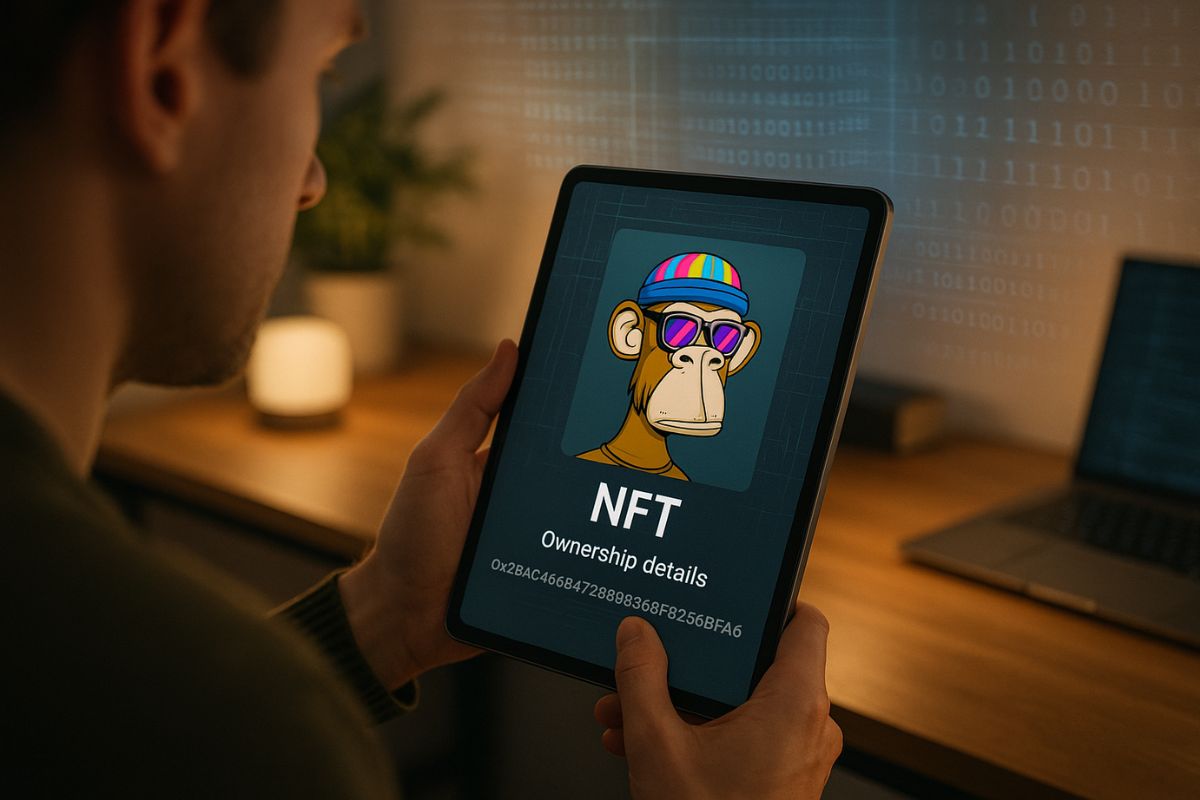Owning an NFT can feel like holding a piece of the internet in your hands. Whether it’s digital art, music, or a tweet, NFTs offer something unique—proof of ownership stored on the blockchain. But what does ownership really mean in this space? Many buyers assume that purchasing an NFT gives them full rights to the work, but that’s not always the case.
For creators and collectors alike, understanding NFT ownership rights helps avoid confusion and ensures everyone knows where they stand. From copyright limitations to usage permissions, there’s a lot to unpack.
What This Article Covers
NFT ownership can be confusing, especially when legal rights don’t always match expectations. This post breaks down key concepts to help you understand:
- What you actually own when you buy an NFT
- The difference between owning the token and the content
- How licensing terms affect what you can do with an NFT
- Steps to protect your rights as a buyer or creator
By the end, you’ll have a clearer picture of what NFT ownership includes—and what it doesn’t.
Owning a Token vs. Owning the Content
When you buy an NFT, you’re purchasing a token. This token is a digital certificate of authenticity recorded on the blockchain. But this doesn’t automatically grant you ownership of the digital asset itself, such as the artwork, video, or file it points to.
Think of it like buying an autographed baseball card. You own the card and the autograph, but not the rights to reproduce the image printed on it. The same idea applies to NFTs. You may own the token, but not the copyright unless that’s specifically transferred.
Many NFTs link to files stored on external servers. The metadata tells you what the token represents, but unless the creator explicitly transfers rights, you don’t get control over the underlying file.
Licensing and Smart Contracts
Creators often define what buyers can or can’t do through licenses embedded in smart contracts or written in accompanying documents. Some allow personal use only. Others permit commercial use, like printing the image on merchandise. But unless clearly stated, you can’t assume you’re free to use the work however you want.
These licenses vary from project to project. Some high-profile NFT collections, like CryptoPunks or Bored Ape Yacht Club, have set terms. Some grant owners broad usage rights, while others limit actions like reselling, remixing, or displaying in public settings.
Reading the fine print matters. It defines your ability to profit from or publicly showcase the NFT. Always check the project website or contract for license details before you buy.
Copyright Still Belongs to the Creator
Unless the creator explicitly gives it up, copyright usually stays with them. This means they can reproduce, distribute, and even resell the digital content. You might own the token, but you don’t get those legal powers unless a copyright transfer is included.
In practice, creators often retain copyright to protect their work or profit from future uses. This keeps control in their hands while still allowing others to own a version on the blockchain.
For buyers, this can feel limiting—but it’s normal. Just like buying a book doesn’t give you the right to print and sell copies, owning an NFT doesn’t make you the creator.
How Creators Can Clarify Rights
Creators can help buyers by being transparent about what’s included. That means stating clearly:
- Whether commercial use is allowed
- If modifications are permitted
- What rights stay with the creator
Some creators use platforms that help automate this, with built-in licensing tools or smart contract templates. These can add legal clarity to the transaction and help avoid misunderstandings.
Good communication up front leads to a healthier community where expectations are met and trust is stronger.
Legal Standards Are Still Evolving
NFTs are still relatively new. Laws about digital ownership, copyright, and blockchain technology are catching up. Right now, there’s no single standard for NFT rights. Different countries have different rules, and much of it comes down to contracts.
This legal uncertainty means both creators and buyers need to do their homework. For creators, that could mean consulting with a legal expert before launching a project. For buyers, it means asking questions and reading all available documentation before making a purchase.
Even well-meaning creators can unintentionally leave out key details, which is why documentation and transparency are so valuable.
Building Trust Through Clear Rights
The NFT space runs on community and trust. When creators clearly outline rights and responsibilities, it sets a strong foundation for long-term support. Buyers know what they’re getting. Artists know their work is respected.
Whether you’re an artist launching a collection or a buyer supporting a creator, clear communication about ownership rights benefits everyone. It reduces friction and opens the door to wider adoption.
NFTs aren’t just about digital assets—they’re also about relationships. And every good relationship needs clear understanding.
What Buyers Should Take Away
Owning an NFT doesn’t always mean owning the artwork or file in the way most expect. Instead, you hold a digital token, and that token gives you access to rights defined by the creator. Some projects offer wide freedom. Others are more limited. Either way, the key is knowing what you’re buying before you commit.
As the NFT space grows, clearer standards and better tools will likely help make these rights easier to understand. Until then, ask questions, read carefully, and choose projects that are transparent about what they’re offering.

No Responses